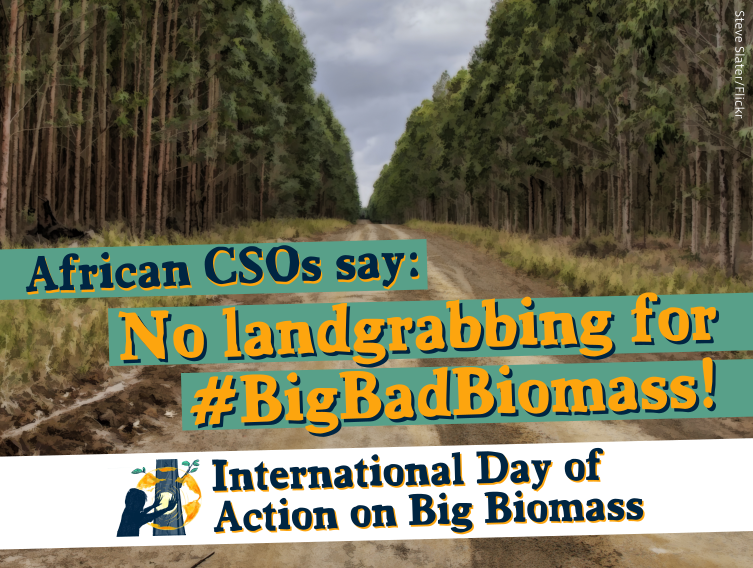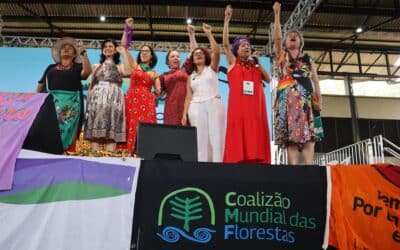El subgrupo para África del Grupo de Trabajo sobre la Biomasa ha conmemorado el Día Internacional de Acción sobre la Biomasa a Gran Escala publicando la siguiente declaración dirigida a les aliades y a los medios de comunicación. Para ver una lista completa de los eventos que tendrán lugar en el Día de Acción y cómo participar, consulte aquí.
No landgrabbing for industrial biomass! Statement from Africa on #BigBadBiomass
The Biomass Working Group’s Africa sub-group stands in solidarity with environmental and social justice activists from around the world in their struggles against the industrial-scale burning of wood for energy.
Though we recognise the need to lessen our dependence on fossil fuels, we contend that burning wood biomass cannot be promoted as a ‘renewable’ or ‘green’ energy option.
Trees can be burnt in seconds, but it takes decades to grow and sequester the CO2 released. This is time we do not have, creating a ‘carbon debt’ that we can no longer afford.
Large scale burning of wood biomass leads to an increase in the demand for industrial timber plantations, which have a high impact in areas where they are established, most of which is currently occurring in the Global South.
Plantation expansion goes hand-in-hand with landgrabbing and the abuse of community rights, and impacts the livelihoods and food sovereignty of rural communities. All of these impacts are felt disproportionately by women, Indigenous Peoples and other underrepresented groups.
Timber plantations are not ‘forests’, but monocultures with devastating impacts on biodiversity. Industrial timber plantations of fast growing species have a massive impact on water resources, and can completely alter hydrology in affected areas. Successive rotations of monoculture timber plantations impoverishes soils, and fertilizers and other agrochemicals pollute watercourses and groundwater.
Burning wood releases toxins which trees have accumulated during their growing cycle, creating dangerous air pollution for people living in close proximity to biomass facilities.
Africa, which contributes the least of all regions to climate change, cannot afford to see its resources degraded and impoverished further to cater for ‘overconsumption’ and extreme consumerism in other parts of the world.
At the same time, rapid population growth, urbanisation and a growing middle and upper class in Africa could see its power demand double in the next few decades. We must transition towards clean power generation technologies, and away from fossil fuels.
Rural communities must also be supported to adopt safe, reliable and clean energy options, with more focus on renewable and decentralised production, such as from small-scale hydro, wind, solar and geothermal power generation.
However, burning wood for industrial energy generation will compound global ecosystem degradation and is a ‘fake solution’ to the climate crisis.




